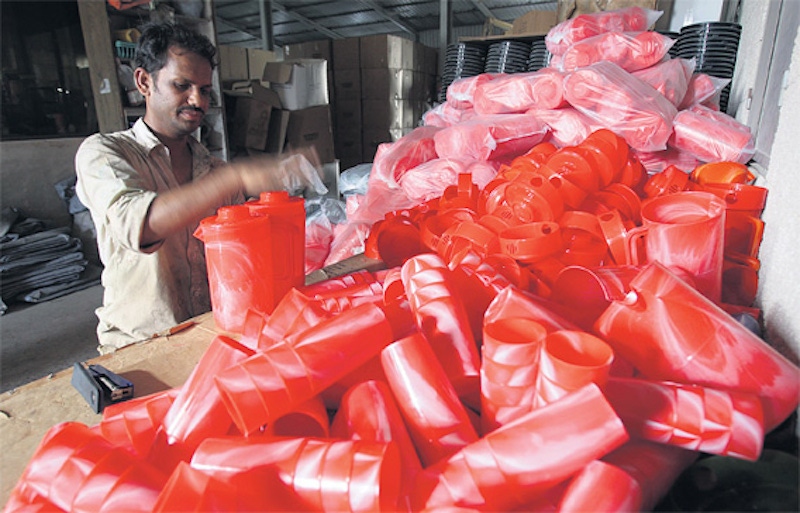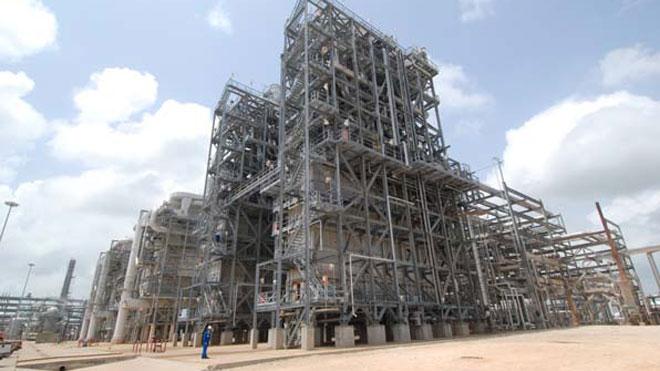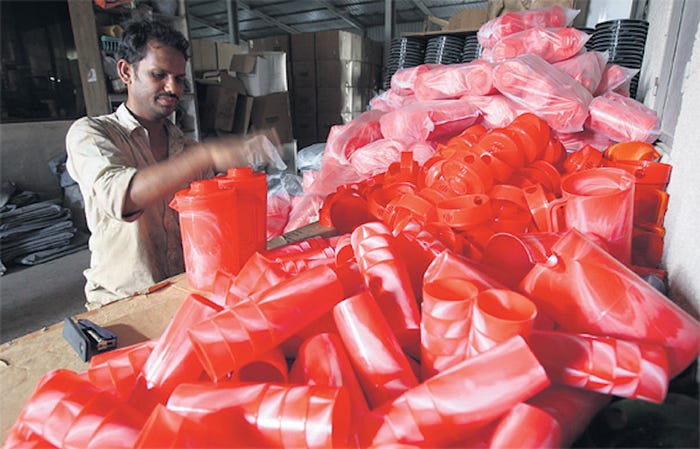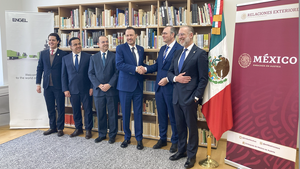The GCC plastics industry says it will grow through diversification
There's no doubt that the Mideast Gulf Cooperation Council (GCC), which includes the states of Bahrain, Kuwait, Oman, Qatar, Saudi Arabia and the UAE, are paying close attention to the development of U.S. shale production.Years of cheap raw materials helped the region become a major exporter of plastics. But some say the abundant U.S. shale gas development is presenting new challenges to the GCC petrochemical industry.
April 1, 2014

There's no doubt that the Mideast Gulf Cooperation Council (GCC), which includes the states of Bahrain, Kuwait, Oman, Qatar, Saudi Arabia and the UAE, are paying close attention to the development of U.S. shale production.
Years of cheap raw materials helped the region become a major exporter of plastics. But some say the abundant U.S. shale gas development is presenting new challenges to the GCC petrochemical industry.
 Dubai-based consulting firm Booz & Co. says the GCC petrochemical industry is faced with three main options: remain upstream and participate in shale gas ventures in North America, move downstream into performance or specialty chemicals, or become consolidators of the industry within the GCC to build greater scale.
Dubai-based consulting firm Booz & Co. says the GCC petrochemical industry is faced with three main options: remain upstream and participate in shale gas ventures in North America, move downstream into performance or specialty chemicals, or become consolidators of the industry within the GCC to build greater scale.
Moayyed Al-Qurtas, vice chairman of petrochemical giant Tasnee, which is also one of the largest industrial companies in Saudi Arabia and the Middle East, said that the country needs to diversify its revenue through the use of heavier feedstocks and the production of more "sophisticated" products. The GCC petrochemicals industry is projected to continue a growth pattern over the next five years, but at a lower growth rate compared with the past five years due to a constraint in gas supplies, he said.
"We must keep looking into new projects and technologies," Al-Qurtas said. "Some view us as 'fly over land' and don't pay attention to the potential."
Still, the Gulf Petrochemicals & Chemicals Association (GPCA), the region's longest-standing trade association, believes the plastics industry is set to grow and diversify over the next five years. Over the past five years, the region's plastic production capacity has almost doubled, rising from 12.7 million tons in 2008, to 24.7 million tons in 2013. Plastics currently account for 17% of the GCC's 144.3 million ton petrochemical capacity.
"Since the industry began production in the early-1980s, plastics production in the Gulf has developed in a sustained and steady pattern. However, recent investments by the region's petrochemical players will usher in a period of portfolio diversification," said Abdulwahab Al-Sadoun, GPCA's Secretary General.
steady pattern. However, recent investments by the region's petrochemical players will usher in a period of portfolio diversification," said Abdulwahab Al-Sadoun, GPCA's Secretary General.
For example, Dow Chemical plans to expand its plastics business through a joint venture with Saudi Aramco in Saudi Arabia, with the products destined for the emerging markets of Asia-Pacific, the Middle East, Eastern Europe and Africa.
Another joint venture for the plastics market includes Clariant and Tasnee, which will establish a masterbatches joint venture in Saudi Arabia. Within the framework of the agreement, through its 100% subsidiary Rowad National Plastic Company Ltd., Tasnee will acquire a 40% stake in Clariant's masterbatches operations in the country, already operating under the name Clariant Masterbatches (Saudi Arabia) Ltd. Together, the companies will be able to develop new solutions for the plastics market. The construction of a new plant for the production of white masterbatches has been decided, the companies said.
In 2012, the sale of plastic products resulted in $29.08 billion in revenues, or 35.6% of the region's total $81.7 billion earnings, according to the GPCA. The UAE is the second largest plastic producing country in the GCC after Saudi Arabia, accounting for 10.2% of the region's polymer capacity.
An emerging trend for the GCC's plastic industry will be the diversification of its products portfolio, for wide ranging applications in the aviation, transport and food packaging sectors. By 2017, the region will produce 23 plastic products; more than double the current amount.
"This positive development signals that GCC plastics producers are set to grow and evolve their processes, eventually giving them the position as a market leader in innovation," Sadoun said.
About the Author(s)
You May Also Like


